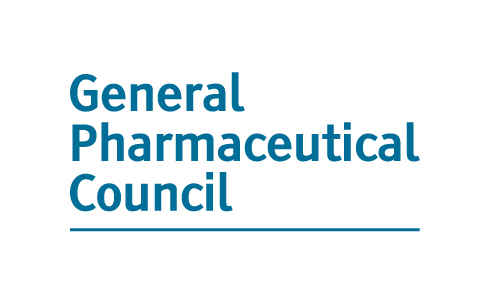IBS and probiotics – The role of pharmacy staff in supporting customers with irritable bowel syndrome
)
Irritable bowel syndrome (IBS) is the most common functional gastrointestinal disorder, affecting approximately 20% of adults in the UK1. IBS is being increasingly attributed to changes in the bacterial composition of the gut as a result of disruptions to shared signalling pathways between the central nervous system and the digestive system. As a result it is being referred to as a disorder of the “microbiome-gut-brain-axis”. Added to this there is evidence linking IBS to a number neurological and psychiatric conditions, such as migraine and depression, which further supports the theory that disturbances of the gut-brain axis are a significant factor in the development of IBS2.
IBS is an umbrella term for a heterogenous set of conditions with multifactorial pathophysiology and presentations. On investigation, there is no objective structural or mechanistic abnormality of the gastrointestinal tract to explain the symptoms of abdominal pain, bloating and altered bowel function. IBS is categorised into subtypes based upon the predominant symptom3:
- IBS-C: constipation predominant;
- IBS-D: diarrhoea predominant, the most common subtype;
- IBS-M: mixed C and D;
- IBS-U: unclassified with no clear predominance of one symptom.
In the UK, treatment options are based on subtype, symptom severity and impact on activities of daily living and hence quality of life. First line treatment regimens are based on diet and lifestyle advice, with second line introducing pharmacological interventions for symptom relief and mood stability. Interestingly – and further illustrating the importance of gut-brain interaction in IBS - if there is no improvement seen after 12 months then psychological interventions may be considered. There is growing awareness that novel therapies should be IBS-subtype specific rather than generic and we therefore need to explore new avenues for treatments looking at IBS as a constellation of subtypes rather than a single diagnosis4.
Evidence emerging in the last decade indicates that the composition of the GI microbiota (all of the microorganisms - bacteria, viruses, fungi - that reside in a particular environment)5 is a potentially significant mechanism by which IBS develops and persists, and thereby offers an additional route for microbiota manipulation strategies as an attractive IBS management option6,7.
But how could microbiome manipulation help improve symptoms in IBS patients? In healthy adults, the GI microbiota consists of trillions of cells from over 1000 bacterial species carrying a gene set more than 150 fold larger than the human genome. These cells have a vast array of functions to provide benefit to the host8. Interestingly, only 1/3 of the gut microbiota is standardised among healthy adults, with the remaining 2/3 being as individual to us as our fingerprints. Despite these differences, they help control and regulate the same set of biological processes and functions. Disturbances in the GI microbiota (change in its composition, abundance or proportions between different bacterial species), known as dysbiosis, may occur through a number of mechanisms9. Antibiotic therapy, for example, whilst being vital to treat bacterial infections, can cause collateral changes to the commensal bacteria. Antibiotic use has been shown to significantly correlate with the development of symptoms of IBS (odds ratio 3.70)10.
There have also been similar effects on the microbiota proven following acute gastroenteritis caused by pathogens such as Salmonella typhimurium. Studies have identified both a general decrease in bacterial diversity and, more specifically, decreased levels of Bifidobacterium and Lactobacillus species in known IBS sufferers and those previously healthy individuals who develop IBS symptoms after a bout of acute infective gastroenteritis11,12. This was starkly illustrated following an outbreak of gastroenteritis in Walkerton, Ontario (Canada) in 2000. The outbreak was triggered by contamination of the municipal water supply with Escherichia coli 0157:H7 and Campylobacter jejuni. A cohort study in the two following years found that more than a third (36.2%) of those who had experienced clinically suspected gastroenteritis during the outbreak had gone on to develop symptoms of IBS. In comparison, of those individuals who had not suffered from gastroenteritis, only 10% developed IBS13.
There is evidence to suggest that modern lifestyle, stress, environmental factors, medications and a number of infectious processes can have a negative impact on the diversity and function of the gut bacteria. Several studies have documented altered microbial patterns in those with IBS compared to healthy subjects, while other studies have suggested the existence of a distinct microbial signature in IBS sufferers7,14. To counteract the loss of variety and abundance of beneficial bacteria in the gut, the use of probiotics has been suggested and extensively studied. Probiotics are defined by the World Health Organization as “live microorganisms, which when taken in adequate amounts, confer a health benefit on the host”. They can be in the form of fermented foods (e.g. yogurt, kimchee, kombucha) or food supplements (capsule, powder, liquid). As of July 2021 there are approximately 18,000 publications on Google Scholar examining the use of probiotics in IBS, with numerous systematic reviews and meta-analysis.
The evidence base hypothesises a number of ways by which probiotics may exert their beneficial effects on the host, these include:
- Suppression of pathogens by competing for nutrients and mucosal space and concurrent production of bacteriocins (antibiotic-like molecules produced by bacteria)15,16;
- Improvement of barrier function by increased mucus secretion and promoting enhancement of the tight junction, which all together improves gut barrier function and reduces gut permeability (often referred to as leaky gut)15,17;
- Immunomodulation – modulate nonspecific cellular immune response via increased phagocytic activity 18, while other probiotics can induce secretion of cytokines in a strain specific manner 19.
- Neurotransmitter production – Lactic acid bacteria are major producers of gamma-aminobutyric acid (GABA) which may influence the communication between the gut and brain (gut–brain axis);
- Production of short chain fatty acids (SCFA) like acetate, propionate, and butyrate20 which confer a wide range of positive physiological effects: reducing luminal pH, stimulating mucus production, stimulate expression of interleukin-10 (an anti-inflammatory molecule)21.
In recent years, a considerable amount of research has investigated the effect that probiotics may have on IBS subjects. All recent systematic reviews and meta-analyses have shown that probiotic supplements, especially those containing a combination of several different bacterial strains, offer a degree of symptom relief or resolution (reduced global symptoms, abdominal pain, reduced bloating, flatulence and regulated daily bowel movements)4,22–24. Furthermore, a British Dietetic Association (BDA) systematic review in 2016 examined 35 clinical trials in the field and found that in 83% of trials, probiotics improved at least one outcome measured25. The BDA concluded that there is certainly a general benefit to IBS patients when using probiotics, however, as most studies did not perform subtype specific analysis, the results were not able to identify which probiotic products are best in the different IBS-subtypes.
The most common IBS subtype, IBS-D, is characterised by high frequency of bowel movements (>3 per day), watery/loose stools and sudden urges to go to the toilet3. Few trials have performed IBS subtype specific analysis of the use of probiotics, however, one of the largest IBS randomized controlled trials published to date investigated the effectiveness and safety of a multistrain probiotic formulation specifically in patients with moderate-to-severe IBS-D26. A total of 360 patients completed a 5-month trial where the probiotic was administered daily for 16 weeks (with a one-month follow up). Abdominal pain severity was reduced by 69% in the probiotic group (p<0.001) and 86% of patients said their symptoms had improved to either mild or symptom-free by the end of the trial (p>0.001). The number of bowel movements was also significantly reduced in the probiotic group compared to placebo from month 2 onwards (p<0.05), moving from 6 motions daily at baseline to 2.5 motions daily at the end of the study26.
As our understanding of the relationship between gut bacterial and IBS pathogenesis develops, there is an increasing awareness of the effect microbial imbalances can have on both the aetiology of the condition, as well as the severity and longevity of symptoms. The mechanisms by which microbiome-based interventions can confer benefit in IBS patients are complex and diverse and is being supported by an ever growing evidence base. This said, more knowledge is required, in the form of large-scale trials to identify the best formulations for use in each of the IBS subtypes. As an intermediate approach, relying on available evidence for the effectiveness of different probiotic formulations provides a promising future for the use of these interventions for IBS as a whole, while subtype specific formulations are being investigated further.
References
1. Irritable bowel syndrome in adults: diagnosis and management | Guidance and guidelines | NICE.
2. Arzani M, Jahromi SR, Ghorbani Z, et al. Gut-brain Axis and migraine headache: A comprehensive review. J Headache Pain. 2020;21(1). doi:10.1186/s10194-020-1078-9
3. Drossman DA. Functional gastrointestinal disorders: History, pathophysiology, clinical features, and Rome IV. Gastroenterology. 2016;150(6). doi:10.1053/j.gastro.2016.02.032
4. Harper A, Naghibi M, Garcha D. The Role of Bacteria, Probiotics and Diet in Irritable Bowel Syndrome. Foods. 2018;7(2):13. doi:10.3390/foods7020013
5. Young VB. The role of the microbiome in human health and disease: An introduction for clinicians. BMJ. 2017;356. doi:10.1136/bmj.j831
6. Jalanka-Tuovinen J, Salonen A, Nikkilä J, et al. Intestinal microbiota in healthy adults: Temporal analysis reveals individual and common core and relation to intestinal symptoms. PLoS One. 2011;6(7). doi:10.1371/journal.pone.0023035
7. Mari A, Abu Baker F, Mahamid M, Sbeit W, Khoury T. The Evolving Role of Gut Microbiota in the Management of Irritable Bowel Syndrome: An Overview of the Current Knowledge. J Clin Med. 2020;9(3). doi:10.3390/jcm9030685
8. Qin J, Li R, Raes J, et al. A human gut microbial gene catalogue established by metagenomic sequencing. Nature. 2010;464(7285):59-65. doi:10.1038/nature08821
9. Weiss GA, Hennet T. Mechanisms and consequences of intestinal dysbiosis. Cell Mol Life Sci. 2017;74(16). doi:10.1007/s00018-017-2509-x
10. Mendall MA, Kumar D. Antibiotic use, childhood affluence and irritable bowel syndrome (IBS). Eur J Gastroenterol Hepatol. 1998;10(1):59-62.
11. Zhernakova A, Kurilshikov A, Bonder MJ, et al. Population-based metagenomics analysis reveals markers for gut microbiome composition and diversity. Science (80- ). 2016;352(6285):565-569. doi:10.1126/science.aad3369
12. Kennedy PJ, Cryan JF, Dinan TG, Clarke G. Irritable bowel syndrome: A microbiome-gut-brain axis disorder? World J Gastroenterol. 2014;20(39):14105-14125. doi:10.3748/wjg.v20.i39.14105
13. Marshall JK, Thabane M, Garg AX, Clark WF, Salvadori M, Collins SM. Incidence and Epidemiology of Irritable Bowel Syndrome After a Large Waterborne Outbreak of Bacterial Dysentery. Gastroenterology. 2006;131(2):445-450. doi:10.1053/j.gastro.2006.05.053
14. Wang L, Alammar N, Singh R, et al. Gut Microbial Dysbiosis in the Irritable Bowel Syndrome: A Systematic Review and Meta-Analysis of Case-Control Studies. J Acad Nutr Diet. 2020;120(4). doi:10.1016/j.jand.2019.05.015
15. Hardy H, Harris J, Lyon E, Beal J, Foey AD. Probiotics, prebiotics and immunomodulation of gut mucosal defences: homeostasis and immunopathology. Nutrients. 2013;5(6):1869-1912. doi:10.3390/nu5061869
16. Tejero-Sariñena S, Barlow J, Costabile A, Gibson GR, Rowland I. In vitro evaluation of the antimicrobial activity of a range of probiotics against pathogens: Evidence for the effects of organic acids. Anaerobe. 2012;18(5):530-538. doi:10.1016/j.anaerobe.2012.08.004
17. Simon E, C?linoiu LF, Mitrea L, Vodnar DC. Probiotics, prebiotics, and synbiotics: Implications and beneficial effects against irritable bowel syndrome. Nutrients. 2021;13(6). doi:10.3390/nu13062112
18. Klein A, Friedrich U, Vogelsang H, Jahreis G. Lactobacillus acidophilus 74-2 and Bifidobacterium animalis subsp lactis DGCC 420 modulate unspecific cellular immune response in healthy adults. Eur J Clin Nutr. 2008;62(5):584-593. doi:10.1038/sj.ejcn.1602761
19. Dogi CA, Weill F, Perdigón G. Immune response of non-pathogenic Gram(+) and Gram(-) bacteria in inductive sites of the intestinal mucosa. Study of the pathway of signaling involved. Immunobiology. 2010;215(1):60-69. doi:10.1016/j.imbio.2009.01.005
20. Ríos-Covián D, Ruas-Madiedo P, Margolles A, Gueimonde M, De los Reyes-Gavilán CG, Salazar N. Intestinal short chain fatty acids and their link with diet and human health. Front Microbiol. 2016;7(FEB). doi:10.3389/fmicb.2016.00185
21. Park J, Kim M, Kang SG, et al. Short-chain fatty acids induce both effector and regulatory T cells by suppression of histone deacetylases and regulation of the mTOR-S6K pathway. Mucosal Immunol. 2015;8(1):80-93. doi:10.1038/mi.2014.44
22. Ford AC, Quigley EMM, Lacy BE, et al. Efficacy of prebiotics, probiotics, and synbiotics in irritable bowel syndrome and chronic idiopathic constipation: systematic review and meta-analysis. Am J Gastroenterol. 2014;109(10):1547-1562. doi:10.1038/ajg.2014.202
23. Didari T. Effectiveness of probiotics in irritable bowel syndrome: Updated systematic review with meta-analysis. World J Gastroenterol. 2015;21(10):3072. doi:10.3748/wjg.v21.i10.3072
24. Dale HF, Rasmussen SH, Asiller öö, Lied GA. Probiotics in irritable bowel syndrome: An up-to-date systematic review. Nutrients. Published online 2019. doi:10.3390/nu11092048
25. McKenzie YA, Thompson J, Gulia P, Lomer MCE. British Dietetic Association systematic review of systematic reviews and evidence-based practice guidelines for the use of probiotics in the management of irritable bowel syndrome in adults (2016 update). J Hum Nutr Diet. 2016;29(5):576-592. doi:10.1111/jhn.12386
26. Ishaque SM, Khosruzzaman SM, Ahmed DS, Sah MP. A randomized placebo-controlled clinical trial of a multi-strain probiotic formulation (Bio-Kult®) in the management of diarrhea-predominant irritable bowel syndrome. BMC Gastroenterol. 2018;18(1). doi:10.1186/s12876-018-0788-9


)
)
)
)
)
)
)
)
)
)
)
)
)
)
)
)
)
)
)
)
)
)
)
)
)
)
)
)
)
)
)
)
)
)
)
)
)

.png/fit-in/500x500/filters:no_upscale())
)
)
)
)
)
)
)
)
)
)
)
)
)
)
)
)
)
)
)
)
)
)
)
)
)
)
)
)
)
)
)
)
)
)
)
)
.png/fit-in/1280x9999/filters:no_upscale())
)
)
)
)
)
